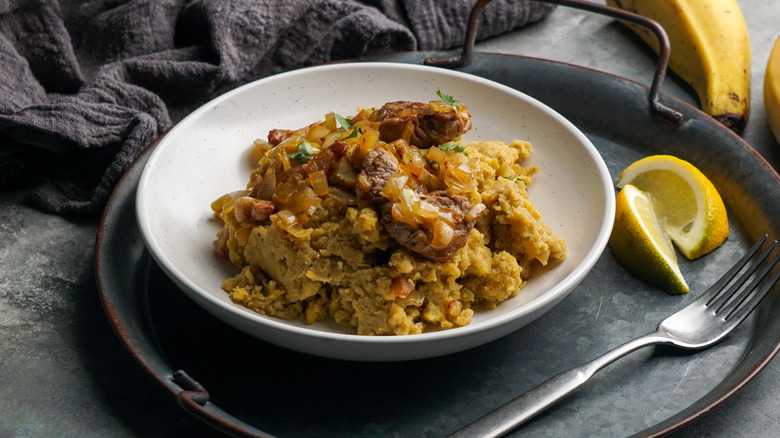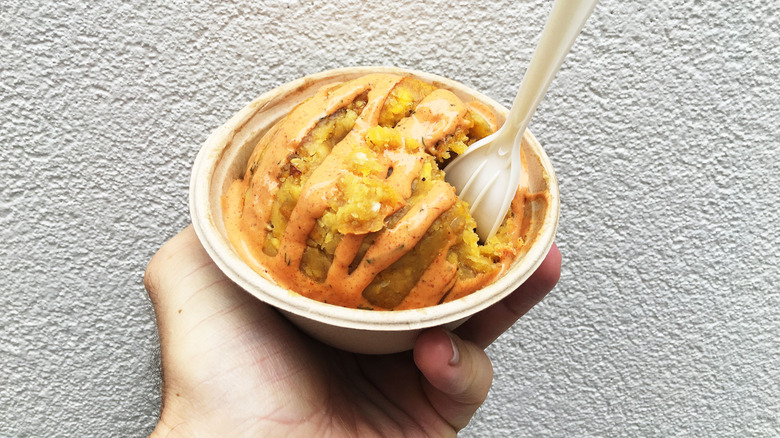The Unique Stuffing Puerto Rico Serves With Thanksgiving Turkey
In Puerto Rico, mofongo is so important that many claim it might as well be dubbed the commonwealth's official dish. Traditionally, it's made by mashing and deep-frying green plantains, garlic, cilantro, and pork rinds, creating a heavy, savory side often eaten alongside a warm bowl of chicken broth or shrimp sauce. Mofongo also appears at the dinner table during the holiday season as a hearty turkey stuffing.
Stuffing is, of course, a popular Thanksgiving side dish that can seriously make your salivary glands act up. Turkey stuffing made from mofongo differs in that it has a crunchy edge from the pork rinds or bacon bits and can be prepared with a mild dose of heat using sweet chilis. And no, in case you were wondering, the presence of plantains doesn't mean mofongo turkey stuffing tastes like bananas.
Plantains taste best when cooked and, as such, some regions know them as "cooking bananas," unlike typical yellow "dessert bananas" that are always eaten raw. Uncooked, plantains aren't very palatable, which is why dishes like caramelized plantains and mofongo can really help them shine. Although mofongo itself is made with minimal spices, it's easy to see why pairing it with a uniquely zested roasted turkey would become a Thanksgiving staple in Puerto Rico.
Mofongo is key for making a Thanksgiving pavochón
A Thanksgiving turkey stuffed with mofongo is known as pavochón, which combines the Spanish words for turkey (pavo) and roast pig (lechón) since it's seasoned just like Puerto Rican roasted pork shoulder. The secret to its mouthwatering taste is all in the marinade, which the turkey soaks in overnight. Oregano, garlic, and olive oil are the most common ingredients in a pavochón marinade, but it isn't uncommon to include thyme, cumin, and even a splash of orange juice for a little citrus zing. Besides using a classic mofongo stuffing, even bolder Latin flavors can be infused into a Thanksgiving turkey with the use of adobo seasoning or sazón in the marinade.
Making homemade mofongo is a quick but demanding process. Home chefs who have perfected their recipes work quickly to cook the spice mixture and green plantains separately before mashing them together. It's tradition in Puerto Rican homes to have a wooden mortar and pestle (pilón) to work the seasoning into the mofongo in batches, but it's often easier to pulse everything together in a food processor. The last thing anyone wants is bone-dry stuffing, so chicken broth or butter should be added slowly until the mixture reaches the right moisture level. Whether it's baked on its own or served in a Thanksgiving turkey, mofongo stuffing is just one delicious example of why culinary cultures should collide more often.

